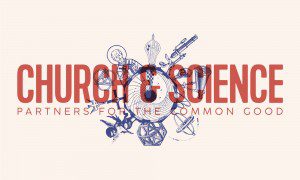
What do religious people do when they have questions about science? Many of them ask their pastors, according to a recent study.[1] Pastors have so many important responsibilities, as well as skills and experience in spiritual care. But how many of them have training in the sciences, or invest time and resources in gaining a better grasp of scientific findings? This is not a question that should be put off based on the tyranny of the urgent. After all, according to a Barna report, many young people are abandoning their churches because they perceive the Christian faith to be in conflict with science.[2] One of my students serving as a youth pastor agreed that given older congregants’ harsh suspicion of certain scientific domains, many teens in his church will likely leave when they reach adulthood; he is trying to serve as a relational bridge between the two camps in his faith community.
The Institute for the Theology of Culture: New Wine, New Wineskins is hosting a conference at Multnomah Biblical Seminary/Multnomah University in Portland, Oregon in partnership with Science for Seminaries: A Project of AAAS Dialogue on Science, Ethics, and Religion. It is titled “Church and Science: Partners for the Common Good.” The aim of the conference is to help provide tools for Christian leaders in seeking to bridge the presumed gap between their faith and science. The four main areas we will explore are the importance of the faith and science conversation for the common good, the history of the relationship between faith and science, hermeneutical humility, and faith and scientific method. Our keynote speakers are Dr. Se Kim, Project Director of the Dialogue on Science, Ethics, and Religion program at the American Association for the Advancement of Science (speaking on the common good); Dr. Rod Stiling, Associate Professor of History, Seattle Pacific University (speaking on the history of the exchange); Dr. John Walton, Professor of Old Testament, Wheaton College (speaking on hermeneutical humility); and Dr. Peter Dodson, Professor of Paleontology, Department of Earth and Environmental Science, School of Arts and Sciences University of Pennsylvania (speaking on faith and scientific method). For a full list of speakers, go to our speakers’ page.
New Wine is also hosting a series of conference-related forums this spring at churches in the Greater Portland metro area on the following subjects: mental illness and pastoral care; urban renewal—unintended consequences and cascading effects; how to prepare Christians for meaningful witness in a scientific age; partnerships with parishioners with science vocations for effective public service; social psychology’s import for understanding how we vote and engage in public discourse; and access to affordable, quality healthcare. For more information on these upcoming forums, see our calendar and .
While we don’t claim to have all the answers to the great variety of religious people’s questions, we at New Wine desire to be a resource. Rather than seeing young people leave the church because of questions over science, we long for the church to be a safe and thoughtful place where they can wrestle with their questions in search of meaningful answers. Join us for “Church and Science: Partners for the Common Good” and stay tuned for articles and posts at our blog.
__________________________
[1]Elaine Ecklund and Christopher Scheitle, “Religious Communities, Science, Scientists, and Perceptions: A Comprehensive Study.” Paper presented at
the Annual Meetings of the American Association for the Advancement of Science, February 2014. http://www.aaas.org/sites/default/files/content_files/RU_AAASPresentationNotes_2014_0219%20(1).pdf (accessed on 3/15/2016).
[2]See “Six Reasons Young Christians Leave Church;” https://www.barna.org/barna-update/millennials/528-six-reasons-young-christians-leave-church#.VuVACPkrLIV.

















